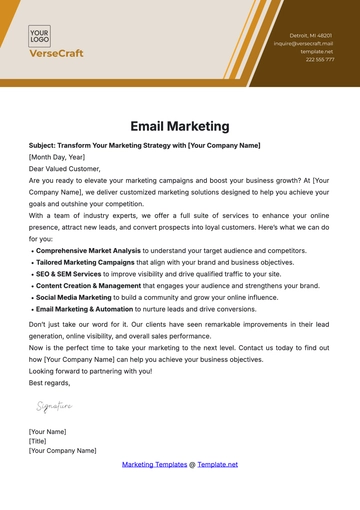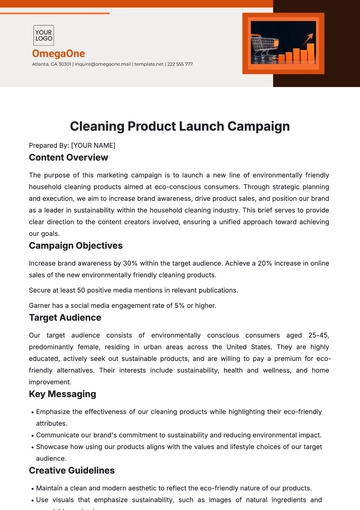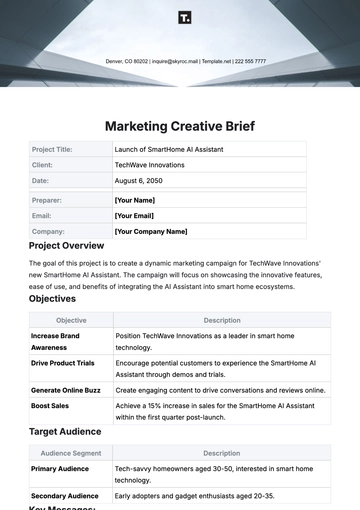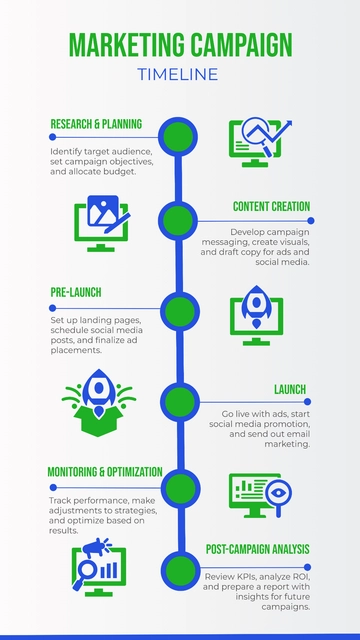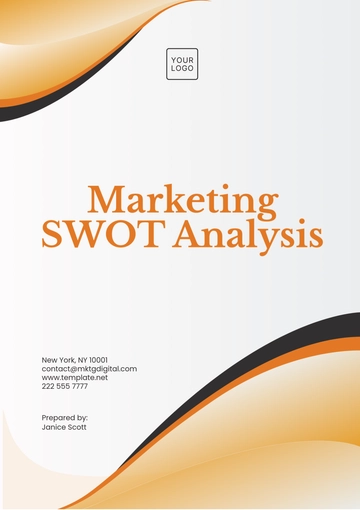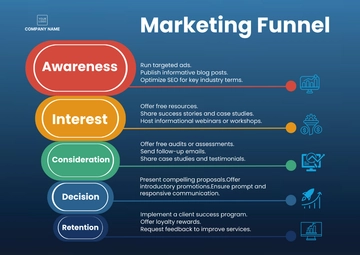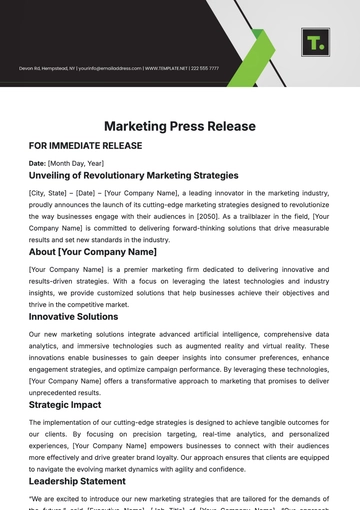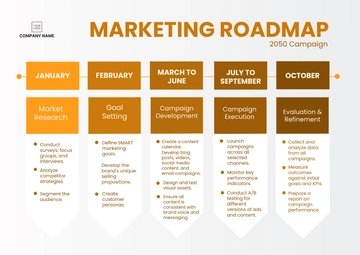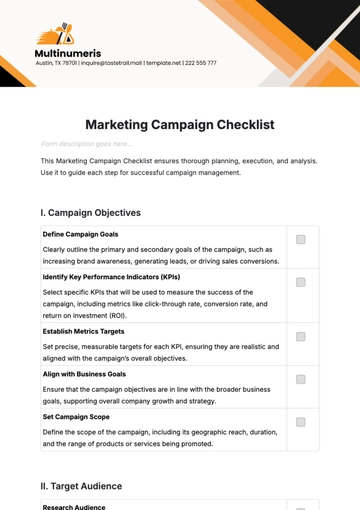Free Management Inbound Marketing White Paper
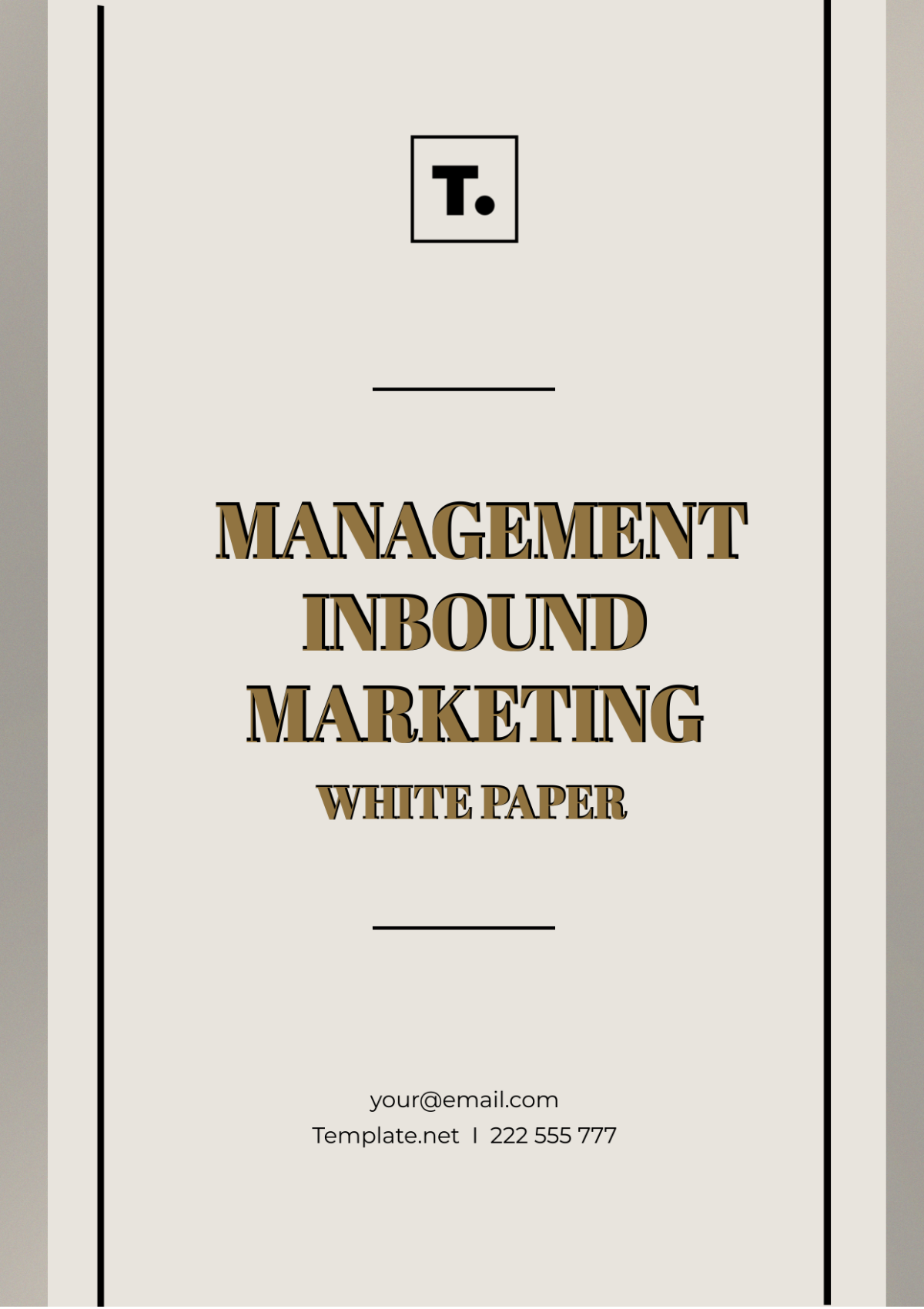

I. Introduction
In today's dynamic marketing landscape, inbound marketing has emerged as a pivotal strategy for businesses striving to attract, engage, and retain customers. As marketing managers navigate the complexities of inbound marketing, understanding and effectively utilizing key performance indicators (KPIs) and metrics become imperative. This white paper aims to elucidate the significance of KPIs and metrics in assessing the efficacy of inbound marketing campaigns and initiatives.
II. Understanding Inbound Marketing
Inbound marketing is a strategic approach focused on drawing customers to a brand by creating valuable content and experiences tailored to their needs and preferences. Unlike traditional outbound methods, such as cold calling and direct mail, inbound marketing seeks to establish meaningful connections with prospects through channels like content marketing, social media, and search engine optimization (SEO).
III. Importance of KPIs and Metrics
KPIs and metrics serve as navigational tools in the vast ocean of inbound marketing, providing valuable insights into the performance and effectiveness of various marketing efforts. By tracking and analyzing relevant metrics, marketing managers can gauge the success of their campaigns, identify areas for improvement, and optimize resource allocation for maximum impact.
IV. Key Performance Indicators (KPIs) in Inbound Marketing
Inbound marketing KPIs encompass a diverse range of metrics that assess different aspects of campaign performance. These include but are not limited to:
Website Traffic: The volume and quality of visitors to the website.
Lead Generation: The number of prospects expressing interest in the brand's products or services.
Conversion Rate: The percentage of leads that ultimately become customers.
Customer Acquisition Cost (CAC): The cost associated with acquiring a new customer through inbound marketing channels.
Customer Lifetime Value (CLV): The total value a customer brings to the business over their lifetime.
V. Metrics for Measuring Inbound Marketing Effectiveness
In addition to KPIs, various metrics provide deeper insights into specific aspects of inbound marketing performance. These metrics may include:
Click-Through Rate (CTR): The percentage of recipients who click on a specific link in an email or advertisement.
Social Media Engagement: Likes, shares, comments, and other interactions on social media platforms.
SEO Performance: Rankings, organic traffic, and keyword performance on search engine results pages (SERPs).
Email Open Rate: The percentage of recipients who open an email campaign.
Content Performance: Metrics such as time on page, bounce rate, and shares for blog posts, videos, and other content assets.
VI. Conclusion
In conclusion, mastering the art of inbound marketing requires a comprehensive understanding of key performance indicators (KPIs) and metrics. By leveraging these insights, marketing managers can refine their strategies, optimize their campaigns, and ultimately drive sustainable growth for their organizations. As the digital landscape continues to evolve, a data-driven approach anchored in relevant KPIs and metrics will remain indispensable for achieving marketing success in the modern era.
For further guidance on implementing effective inbound marketing strategies and maximizing ROI, [Management Consulting Firm] offers tailored consulting services designed to meet the unique needs and objectives of your business.
- 100% Customizable, free editor
- Access 1 Million+ Templates, photo’s & graphics
- Download or share as a template
- Click and replace photos, graphics, text, backgrounds
- Resize, crop, AI write & more
- Access advanced editor
Master the art of inbound marketing strategies effortlessly with our Management Inbound Marketing White Paper Template from Template.net. Curated by marketing mavens, it provides an editable canvas to articulate inbound marketing tactics with precision. Customizable to reflect your brand's essence, it's effortlessly editable in our Ai Editor Tool, ensuring seamless communication of your marketing prowess.
You may also like
- Marketing Google Slide
- Marketing Letter
- Marketing Quotation
- Marketing Report
- Marketing Strategic Plan
- Marketing Plan
- Marketing Proposal
- Marketing Flyer
- Marketing Presentation
- Real Estate Marketing Plan
- Marketing Contract
- Marketing Agreement
- Marketing Resume
- Marketing Checklist
- Marketing Brochure
- Marketing Banner
- Marketing Schedule
- Marketing Vector
- Marketing Logo
- Marketing Chart
- Marketing Campaign Plan
- Marketing Budget
- Marketing Postcard
- Marketing Poster
- Marketing Facebook Post
- Marketing Instagram Post
- Marketing Newsletter
- Marketing Infographic



